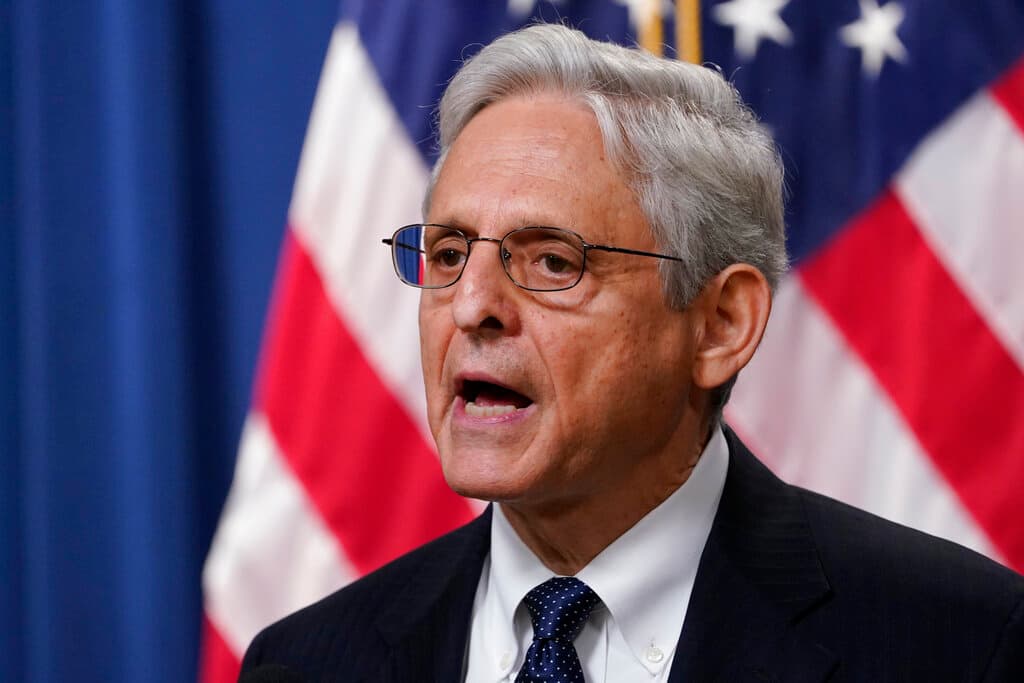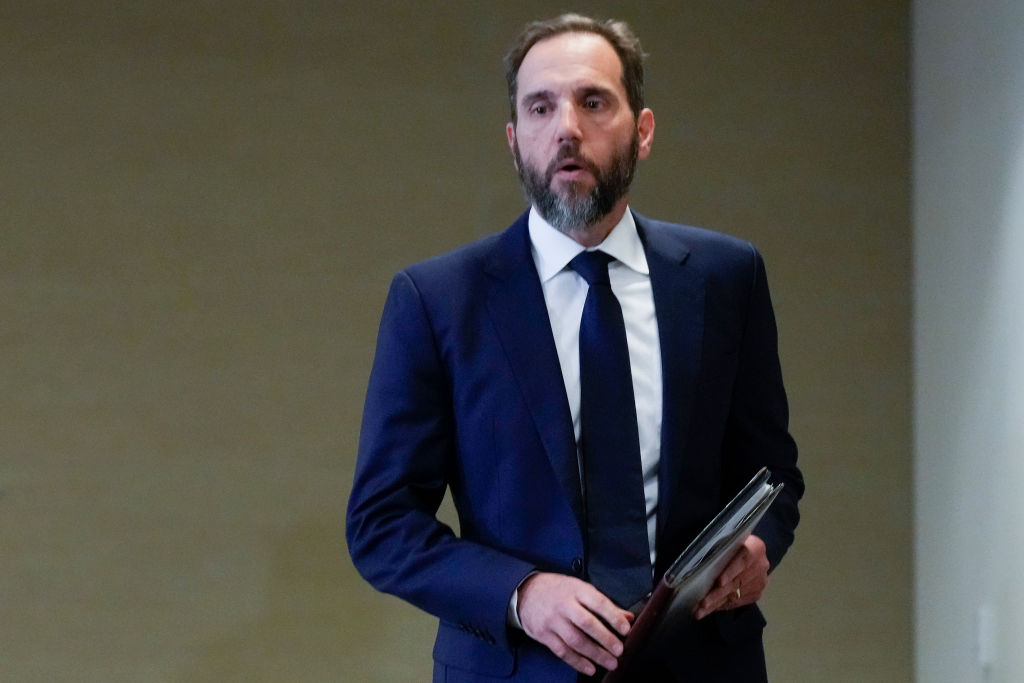Did Merrick Garland Break DOJ’s Election Interference Rules by Approving Jack Smith’s Tactics Against Trump?
The special counsel regulations allow the attorney general to enforce Department of Justice rules — will Merrick Garland do so?

The publication of Special Counsel Jack Smith’s immunity opus 35 days before the election is throwing into sharp relief the possibility that Mr. Smith — and Attorney General Garland — violated the Department of Justice’s own prohibitions with respect to election interference.
Two high-profile legal pundits — Elie Honig and Jack Goldsmith — reckon that Mr. Smith violated this edict with his unusual document. The filing is quadruple the normal length allotted for briefs. It amounts to Mr. Smith’s closing argument before the presidential election. The rub is that the audience is the court of public opinion rather than a petit jury, and the verdict will be rendered not at the jury box but the ballot box.
The decisions to allow Mr. Smith to craft the brief and exceed the page limit were rendered by Judge Tanya Chutkan, who also unsealed the report. The compact briefing schedule she handed down mandates that President Trump’s response to Mr. Smith is due on October 17, three weeks before the election. The setting of a schedule is entirely the purview of the trial court. Judge Chutkan could have delayed the briefing sequence until after the vote.
Trump argued to Judge Aileen Cannon that the filing, officially called “Government’s Motion for Immunity Determinations,” violated not only his due process rights by working to “usurp control and presentation of a defendant’s defense in a criminal case,” but also is a violation of “the Justice Manual and longstanding DOJ norms in cases not involving President Trump.” He calls Mr. Smith’s brief a “politically minded manifesto.”
That manual Trump mentions prohibits federal prosecutors from “select[ing] the timing of any action, including investigative steps, criminal charges, or statements, for the purpose of affecting any election.” Judge Chutkan asserts that she “need not address the substance of those claims” because Trump “does not explain how those putative violations cause him legal prejudice in this case.”
Mr. Smith has never explicitly invoked the upcoming presidential election, though it appears to have motivated his rush to try Trump prior to the Supreme Court’s immunity ruling in Trump v. United States. That ruling ensured that there would not be opening statements before November. Yet the special counsel repeatedly invoked a “compelling public interest” in pushing for an accelerated timetable at every level of the federal judiciary.
By using “compelling public interest,” Mr. Smith seemed to confirm a — not to put too fine a point on it — political motive. The prosecutor returned to this logic in pressing for his immunity document to be only lightly redacted, arguing to Judge Chutkan that “the public’s interest is fully vindicated by accessing the substantive material in the government’s filing.” While courts have recognized the public’s interest in access, the “right to a speedy and public trial, by an impartial jury” belongs to only the “accused.”
Judge Chutkan adds that she can find no ballast for the contention that her “court is bound by or has jurisdiction to enforce Department of Justice policy.” Mr. Smith, though, is bound by that policy. The regulations that govern positions such as his mandate that a “Special Counsel shall comply with the rules, regulations, procedures, practices and policies of the Department of Justice.”
Enforcing that compliance would fall to Attorney General Garland, who “may request that the Special Counsel provide an explanation for any investigative or prosecutorial step, and may after review conclude that the action is so inappropriate or unwarranted under established Departmental practices that it should not be pursued.”

It is possible that Messrs. Smith and Garland have already convened to discuss the case’s trajectory in the weeks before the election. After the Supreme Court handed down Trump in July, the special counsel requested from Judge Chutkan a three-week delay in pre-trial proceedings. He explained that he required time to consult with “other components of the Justice Department.” That could have comprised General Garland.
General Garland does not appear to have handed down such a request to Mr. Smith. The erstwhile rider of the District of Columbia Circuit could reckon that the timing of the motion’s release was not dictated by his special counsel, but by Judge Chutkan’s decision to unseal. Judge Juan Merchan, who presides over Trump’s hush money case at New York, elected to delay two key decisions in that case until after the election. Judge Chutkan maintains that politics played no role in her decision.
Trump invoked a second DOJ norm in his effort to stymie the special counsel. The informal 60-day rule is unwritten, meaning that its contours are elusive. It is understood, though, to warn against undertaking steps that would influence an election, or create the perception that the largest law firm in the world, as the DOJ is sometimes spoken of, is attempting to influence the outcome of a vote.
The 45th president explained on Truth Social: “It is DOJ policy that the Department of Justice should not take any action that will influence an election within 60 days of that election — but they just have taken such action.” Mr. Smith’s new and slimmed-down indictment — with charges handed up by a second grand jury — was docketed 70 days before November’s election.
While appellate jurists could agree with Judge Chutkan that DOJ guidelines are not theirs to enforce, the possibility that immunized evidence was widely disseminated, potentially to jurors, could cause dismay among some on the high court who ruled that official presidential acts are presumptively immune and, if the government fails to meet its burden, are not to be charged — or even introduced into evidence.

